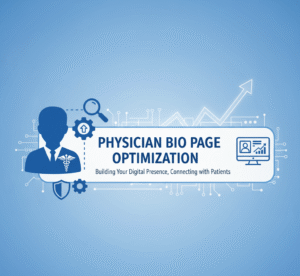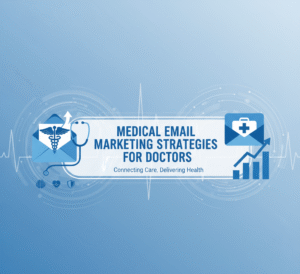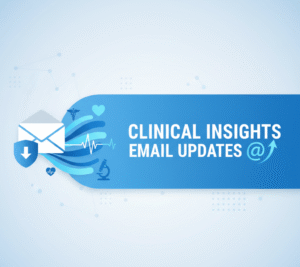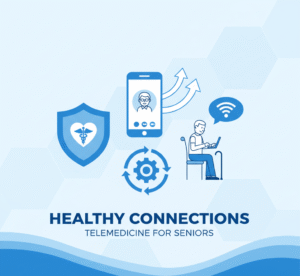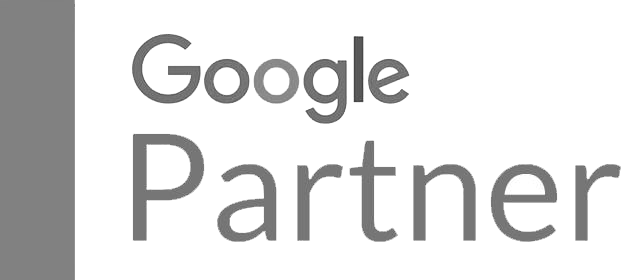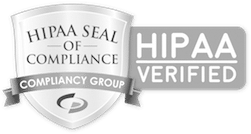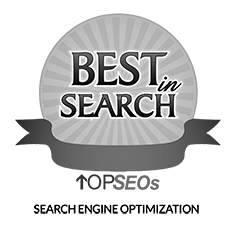“Revolutionize patient acquisition and engagement by using AI in healthcare marketing to power 24/7 chatbots, hyper-personalized content, and ultra-precise predictive ad campaigns.”
Is your front desk swamped? Are you spending a fortune on advertising but struggling to attract the right kind of patients? Do you feel like you’re constantly playing catch-up with your marketing tasks, especially when it comes to creating content and improving your online visibility? If you nodded along to any of that, you’re not alone. Running a modern healthcare practice is more complex than ever. The demands on your time and resources are immense. But what if you had a brilliant assistant? One that worked 24/7, never got tired, could analyze data in a split second, and helped you make smarter decisions to grow your practice.
That’s not science fiction. That’s the practical reality of Artificial Intelligence (AI) in healthcare marketing.
For many, the term “AI” conjures up images of futuristic robots and complex, inaccessible technology. The truth, however, is much more grounded and immediately practical. AI is already working behind the scenes on the platforms you use every day, presenting a massive opportunity for medical practices, clinics, and hospitals to connect with patients more effectively and efficiently. This isn’t about replacing the human touch that is so vital in healthcare. Instead, it’s about utilizing innovative technology to handle repetitive, data-heavy tasks, freeing you and your team to focus on what truly matters: delivering excellent patient care.
This comprehensive guide will break it all down for you. We’ll move past the hype and show you the tangible ways AI is reshaping the healthcare marketing world. We will explore accessible tools that you can start thinking about today, from chatbots that act as your digital front desk to intelligent ad platforms that pinpoint your ideal patients with precision. Most importantly, we’ll provide you with a clear and actionable roadmap on how to prepare your practice for this technological shift. The future of healthcare marketing is already here, and it’s time to get ready.
What Exactly Is AI in Healthcare Marketing? (Let’s Keep It Simple)
Before we dive into the specific tools and strategies, let’s clear up what we mean by “AI.” Forget the sentient robots you’ve seen in movies. The AI we’re talking about in a business and marketing context is what experts call “Narrow AI.” This type of AI is designed to perform a specific task exceptionally well. Think of it less like a C-3PO and more like a team of super-specialized assistants.
- One assistant is a math whiz who can analyze thousands of data points from your ad campaigns in seconds to find hidden patterns.
- Another is a master organizer who can manage your appointment calendar and answer patient questions 24/7.
- A third is a brilliant research librarian who can help you brainstorm and outline content for your blog in minutes, rather than hours.
Essentially, AI in marketing is a set of technologies that use data to automate tasks, generate insights, and make intelligent predictions. These systems learn from information. The more data they process, the more innovative and effective they become.
In the context of healthcare, this technology is compelling. Why? Because the patient journey is complex and deeply personal. A person searching for a new pediatrician has different needs and concerns than someone researching options for knee surgery. Traditional marketing often uses a one-size-fits-all approach, which can be inefficient and feel impersonal.
AI changes that. It allows you to:
- Personalize Communication at Scale: AI can help you tailor your messaging to specific patient groups based on their needs, behaviors, and demographics. This makes potential patients feel seen and understood.
- Make Data-Driven Decisions: Instead of guessing which marketing strategies will work, AI provides concrete data and predictions. It helps you allocate your budget to the channels and campaigns that deliver the best results, maximizing your return on investment (ROI).
- Improve Efficiency: AI automates the time-consuming tasks that bog down your marketing efforts and your front-office staff. This frees up your human team to focus on higher-value activities, such as patient engagement, strategic planning, and building community relationships.
The core idea is simple: AI gives you the tools to understand your potential patients on a deeper level and connect with them in a more meaningful and efficient way. It’s not about cold, robotic interactions. On the contrary, it’s about using technology to facilitate better human connections by clearing away the administrative and analytical clutter. It’s a key part of current healthcare technology trends and is quickly defining the future of healthcare marketing.
The Here and Now: AI Tools You Can Use Today
This isn’t a conversation about some far-off future. Powerful AI marketing tools are accessible and are already delivering incredible results for healthcare practices. Let’s explore three of the most impactful applications that are currently changing the game.
Your 24/7 Front Desk: Medical Chatbots
Picture this: It’s 10 PM on a Tuesday. A worried parent is searching online for a local pediatric urgent care for their child’s fever. They land on your website, but your office is closed. They have questions about insurance, your hours, and whether they should come in. In a traditional setup, they might click away, and you’ve lost a potential patient.
Now, imagine the same scenario with an AI-powered chatbot on your website. A helpful chat window greets the parent. They can ask their questions in plain English and get instant, accurate answers. The chatbot can then go a step further.
- “Are you a new or existing patient?”
- “What symptoms are you seeing?”
- “Would you like to book the first available appointment for tomorrow morning?”
This is the power of medical chatbots. These aren’t the clunky, frustrating bots of the past that could only respond to a few pre-programmed keywords. Modern chatbots utilize a technology called Natural Language Processing (NLP), which enables them to comprehend and interpret human language, including typos and slang. They can hold intelligent, helpful conversations that guide a potential patient toward taking the next step.
What Can a Medical Chatbot Do for Your Practice?
- Answer Frequently Asked Questions (FAQs) Instantly: Think about the questions your front desk staff answers dozens of times a day. “What are your hours?” “Do you take Blue Cross insurance?” “Where are you located?” A chatbot can handle all of these inquiries, 24/7/365, without ever getting tired or putting someone on hold.
- Qualify New Patient Leads: You can program the chatbot to ask a series of screening questions to determine if a visitor is a good fit for your practice. This ensures that the leads passed on to your staff are of high quality and relevant, saving you valuable time and resources.
- Schedule Appointments: Advanced chatbots can integrate directly with your practice management or EMR system’s calendar. A patient can book a confirmed appointment directly from the chat window on your website, even outside of business hours. This convenience is a massive differentiator in a competitive market.
- Gather Information Securely: When selecting a chatbot vendor, HIPAA compliance is a non-negotiable requirement. A compliant chatbot provides a secure environment for collecting initial patient information, which can then be seamlessly transferred to your internal systems.
By implementing a medical chatbot, you achieve several critical goals simultaneously. You’re improving the patient experience by providing instant answers and convenience. You’re capturing leads you would have otherwise missed after hours. And you’re freeing up your valuable human staff from repetitive phone calls so they can focus on the patients right in front of them. It’s a prime example of marketing automation for doctors that delivers immediate, measurable benefits.
Finding Your Ideal Patients with Surgical Precision: Predictive Analytics
For years, digital advertising in healthcare has involved a significant amount of educated guesswork. You can target your ads based on broad demographics, such as age, gender, and location. For example, a cosmetic dermatologist might target “women ages 35-55 within a 15-mile radius.” While better than a billboard on the highway, it’s still casting a vast net. You’re paying to show your ads to thousands of people in that group who have zero interest in your services.
Enter predictive analytics in healthcare advertising.
Platforms like Google Ads and Meta (Facebook/Instagram) Ads now have compelling machine learning algorithms built into their core. These AI systems analyze trillions of data points across the web—search queries, website visits, online behaviors, app usage, and more—to build a deep understanding of user intent.
Instead of you telling the platform, “Find me women who are 40,” you can now tell it, “Find me people who are behaving like they are ready to book a dermatology appointment.”
How Does Predictive Analytics Work in Practice?
The AI looks for subtle patterns and signals that a human analyst could never spot. For an orthopedic practice specializing in hip replacements, the AI might identify users who:
- Recently searched for “hip pain when walking” or “best surgeons for hip replacement.”
- Have visited websites like WebMD or Healthline to read articles about arthritis.
- We are in a specific age and location demographic that historically has a high rate of hip replacement surgery.
- Have shown online behaviors similar to patients who have already converted on your website.
The platform’s AI then synthesizes all this information to create a predictive audience. It prioritizes showing your ads to these specific individuals because they have the highest probability of needing your services and becoming a patient. This process is crucial to the effective use of AI in patient acquisition.
The Benefits are Crystal Clear:
- Dramatically Improved ROI: You stop wasting money on irrelevant clicks. Your advertising budget is spent with laser-like focus on people who are actively in the market for your services, resulting in a significantly lower cost per new patient.
- Higher-Quality Leads: The leads generated through your predictive advertising campaigns are more informed and further along in their decision-making process. They are not just idly browsing; they have a real, pressing need.
- Continuous Optimization: The AI continually learns and improves its performance over time. With every click, every website visit, and every new patient form submission, it gathers more data and refines its targeting. Your campaigns become more innovative and more efficient over time, eliminating the need for manual adjustments to dozens of settings.
Using predictive analytics in your ad campaigns is like upgrading from a fishing net to a high-tech sonar system. You’re no longer just hoping to find patients; you’re using intelligent data to locate them with incredible precision.
Your New Content and SEO Superpower: AI Writing Assistants
Creating consistent, high-quality, patient-focused content is one of the most effective ways to attract new patients online. A great blog post that answers a common patient question can build trust, establish your authority, and rank high on Google, bringing in a steady stream of traffic to your website. But let’s be honest: it’s also incredibly time-consuming. From brainstorming topics to conducting research and then actually writing and optimizing the content, the process can take hours.
This is where AI content creation tools and AI-powered SEO platforms are making a revolutionary impact.
These tools, powered by advanced Large Language Models (LLMs), act as brilliant assistants for your marketing team or content creators. It’s crucial to understand their role: they are not here to replace human expertise, especially in the medical field, where accuracy is paramount. Instead, they are here to supercharge the content creation process.
How Can AI Assist with Your Content and SEO Workflow?
- Overcoming Writer’s Block (Brainstorming & Outlining): Staring at a blank page is tough. With an AI tool, you can input a keyword like “signs of sleep apnea” and instantly get a dozen potential blog post titles, a comprehensive outline with headings and subheadings, and a list of related questions that patients are asking online. This eliminates the initial friction from the creation process.
- Accelerating Research: Suppose you want to write a patient-friendly blog post about the benefits of minimally invasive surgery. An AI tool can analyze the top-ranking articles on the subject and provide a summarized brief, pulling out key points, statistics, and common themes. This can significantly reduce your research time.
- Assisting with Drafting: AI can help write a first draft of a social media post, an email newsletter, or even a section of a blog post. This is the most important caveat: All AI-generated medical content must be rigorously reviewed, edited, and fact-checked by a qualified medical professional. The AI’s job is to provide a starting point or a structural foundation, not the final, medically-approved word. Empathy, nuance, and clinical accuracy must come from a human expert.
- Powering Your SEO Strategy: This is where AI truly shines. Modern SEO platforms use AI to deconstruct Google’s search results page for any given keyword. They can tell you:
- The optimal word count for your article.
- The exact keywords and related phrases you need to include.
- The specific questions you should answer in your content.
- The ideal heading structure (H1, H2, H3s) to use.
By following these AI-driven recommendations, you are no longer guessing what Google wants to see. You are building your content based on a data-backed blueprint for what is already ranking successfully. This is the essence of AI-powered SEO, providing a decisive competitive advantage.
Using these tools means your practice can produce more high-quality, optimized content in less time. This leads to better search engine rankings, more organic website traffic, and ultimately, more new patients finding you when they need you most.
Preparing Your Practice for the AI Revolution (A Practical Checklist)
Seeing the potential of AI is one thing; successfully integrating it into your practice is another. It can feel overwhelming, but it doesn’t have to be that way. You can take a methodical, step-by-step approach to prepare your practice. Here is a practical checklist for preparing for AI in marketing.
Step 1: Start with Your Biggest Problem
Don’t adopt technology just for the sake of technology. The first step is to identify the most significant challenge or bottleneck in your current marketing and patient acquisition process.
- Is your front desk constantly overwhelmed with phone calls? An AI chatbot could be your top priority.
- Is your ad spend high, but your lead quality is low? Focusing on predictive analytics within your ad campaigns would be the logical starting point.
- Do you struggle to publish content consistently on your website? Exploring AI writing and SEO assistants could provide the most significant immediate impact.
By tying your AI exploration to a specific, measurable business problem, you ensure that you’re investing in a solution, not just a shiny new toy.
Step 2: Audit Your Digital Foundation
AI tools don’t operate in a vacuum. They need to plug into a solid technological foundation. Before you invest in advanced AI, take stock of your existing digital assets.
- Website: Is your website modern, mobile-friendly, and optimized for speed? A fantastic chatbot won’t help if your website is frustrating to use.
- Online Scheduling: Do you have a system that allows patients to book appointments online? This is crucial for chatbot integration.
- Customer Relationship Management (CRM): Do you have a system for tracking leads and patient communications? A CRM is essential for managing the leads generated by your AI-powered marketing.
If your core digital infrastructure is outdated, it’s like trying to install a state-of-the-art engine in a 1985 car. You need to upgrade the chassis first.
Step 3: Educate and Involve Your Team
The most significant barrier to adopting new technology is often cultural, not technical. Your team, especially your front-office staff, may see AI as a threat to their jobs rather than a tool to help them. It’s essential to gain their buy-in from the outset.
- Explain the “Why”: Frame the adoption of AI as a way to help them. “We’re bringing in a chatbot to handle the repetitive insurance questions so you can have more time for meaningful conversations with patients in the office.”
- Provide Training: Ensure everyone understands how the new tool works and how it fits into their daily workflow.
- Ask for Feedback: Involve them in the selection and implementation process. They are on the front lines and will have valuable insights into what works and what doesn’t.
When your team sees AI as an ally that makes their jobs easier and more effective, the transition will be infinitely smoother.
Step 4: Put a Premium on Privacy and Security
This cannot be overstated in the healthcare field. Patient privacy is paramount. When you evaluate any AI tool—from a chatbot to a marketing automation platform—your first questions should be about security.
- Is the vendor HIPAA compliant?
- Will they sign a Business Associate Agreement (BAA)?
- How is patient data encrypted, stored, and protected?
Never compromise on security. Work only with reputable vendors who have a proven track record of protecting sensitive patient health information (PHI). A data breach can cause irreparable damage to your practice’s reputation and result in severe financial penalties.
Step 5: Start Small, Measure, and Scale
You don’t need to transform your entire marketing operation overnight. The most effective approach is to begin with a single, manageable project.
- Implement a chatbot on one high-traffic page of your website.
- Run one PPC campaign using an AI-powered bidding strategy.
- Use an AI tool to optimize one new blog post.
Then, measure the results. Did the chatbot increase after-hours lead capture? Did the AI-powered ad campaign have a lower cost-per-lead? Did the optimized blog post start ranking on Google? Use this data to prove the concept and build a business case for further investment. This iterative approach enables you to learn, adjust, and expand your use of AI in a controlled and low-risk manner.
The Future is Now: What’s on the Horizon?
While the tools we’ve discussed are already making a significant impact, the evolution of AI in healthcare marketing is progressing at a rapid pace. The capabilities on the horizon will enable an even more personalized and predictive approach to patient engagement. Here’s a glimpse of what to expect.
Hyper-Personalization: Imagine a potential patient visits your website and reads a blog post about ACL surgery. The next time they visit, the content on your homepage is automatically tailored to feature your orthopedic services. A week later, they receive an email (with their consent, of course) that links to a video testimonial from a former ACL surgery patient. This level of one-to-one personalization, powered by AI, will become the standard for building deep and lasting patient relationships.
Predictive Patient Journey Mapping: AI will soon be able to analyze data to predict a patient’s entire journey. For instance, based on initial search queries, an AI might expect that a patient is in the early stages of research for bariatric surgery. It can then help you deliver the right content at the right time—educational articles first, then surgeon bios, then financing information—gently guiding them through their decision-making process.
AI-Powered Voice Search Optimization: With the rise of smart speakers like Alexa and Google Home, an increasing number of health-related queries are being spoken, rather than typed. For example, “Hey Google, find a top-rated cardiologist near me that takes Aetna.” AI tools will be essential for optimizing your practice’s online presence to answer these voice-based questions directly, ensuring you are the first and best answer they hear.
Proactive Reputation Management: Instead of merely reacting to online reviews, AI enables proactive management of reputation. Sophisticated tools will analyze the sentiment of hundreds or thousands of reviews across Google, Healthgrades, Vitals, and social media in real time. The system could automatically flag a negative review that mentions a specific, urgent issue for immediate follow-up by your staff, while also identifying broader trends (e.g., “many patients are commenting on long wait times”) that can inform operational improvements.
These future developments all point to the same trend: a shift from reactive, broad-based marketing to a proactive, highly personalized, and data-driven model. The practices that begin to build their AI capabilities now will be well-positioned to thrive in this new era of healthcare marketing.
Conclusion: Your Partner in the AI-Powered Future
The rise of Artificial Intelligence in healthcare marketing is not a trend to be feared; it’s an opportunity to be embraced. As we’ve seen, AI is providing practical, powerful tools that help you connect with patients more effectively, operate more efficiently, and make smarter decisions to grow your practice. From 24/7 chatbots that capture leads while you sleep to intelligent ad platforms that identify your ideal patients, this technology is already here and delivering tangible results. The goal isn’t to replace the essential human element of healthcare, but to enhance it by automating tasks that hinder meaningful patient interaction.
Navigating this new technological landscape, however, can be complex and time-consuming. Choosing the right tools, ensuring HIPAA compliance, and integrating them into a cohesive strategy requires expertise. This is where a knowledgeable partner can make all the difference.
At InvigoMedia, we aren’t just watching these trends; we are at the forefront of implementing them. We are a tech-forward agency that believes in leveraging every competitive advantage to help our clients stay ahead of the curve. We have already integrated sophisticated AI tools directly into our SEO and PPC workflows because we know they deliver superior results.
- For our SEO clients, we utilize AI to conduct in-depth competitive analysis, identify high-intent patient keywords that others overlook, and structure content based on a data-driven blueprint for achieving top rankings on Google’s first page. This helps our clients become the go-to authority in their market more quickly.
- For our PPC clients, we don’t just “set and forget” campaigns. Our advertising strategies are powered by AI-driven bidding and predictive audience targeting. We let the machine learning algorithms find the most cost-effective path to acquiring new patients, relentlessly optimizing your ad spend for the highest possible return on investment.
By partnering with InvigoMedia, you’re not just hiring a marketing agency. You are gaining a strategic partner that understands the future of healthcare marketing and has the technical expertise to put it to work for you today. We handle the technology so you can focus on what you do best: caring for your patients.
Ready to see what an AI-powered marketing strategy can do for your practice?
Contact InvigoMedia today for a consultation.
Frequently Asked Questions (FAQs)
Q1: Will AI replace my marketing staff or front desk team?
No, absolutely not. The goal of AI in this context is to be a tool that empowers your team. It automates repetitive, time-consuming tasks (such as answering the same questions repeatedly or manually analyzing spreadsheets) so that your human staff can focus on their strengths: strategy, creative problem-solving, building patient relationships, and handling complex patient needs that require empathy and understanding. Think of AI as a very efficient assistant, not a replacement.
Q2: Is using AI in healthcare marketing safe and HIPAA compliant?
It can be, but you must be extremely diligent. This is a critical point. Any technology vendor that handles or has the potential to interact with Protected Health Information (PHI) must be HIPAA compliant. Before signing up for any service, especially a chatbot or CRM, confirm its compliance status and ensure the provider is willing to sign a Business Associate Agreement (BAA). Security and privacy should always be your top priority.
Q3: I’m not a tech expert. Will implementing AI be too complicated for my practice?
While the technology behind AI is complex, many of the tools designed for businesses are becoming increasingly user-friendly. Furthermore, this is where the value of a partnership comes in. Working with an agency like InvigoMedia means you can enjoy all the benefits of the most advanced marketing technology without needing to become an expert in managing it yourself. We handle the technical complexities so you can enjoy the results.
Q4: How much does it cost to start using AI in my marketing?
The cost can vary significantly depending on the tool and the scale of implementation. For example, a subscription for an AI-powered SEO tool or a simple AI chatbot might have a reasonable monthly fee, comparable to other software you use. A large-scale, enterprise-level predictive analytics platform would be a more significant investment. The most crucial factor to consider is the return on investment (ROI). If an AI tool costs $300 a month but brings in three new high-value patients you otherwise would have missed, it’s paying for itself many times over.
Q5: Can I just have AI write all of my medical blog posts for me?
This is a common question, and the answer is a firm no. AI writing assistants are incredible for brainstorming ideas, creating outlines, and helping draft content. However, they are not medical experts. All content for your website, especially content that provides medical information, must be written, reviewed, edited, and approved by a qualified medical professional at your practice. Using AI as a “co-pilot” to speed up the process is smart; letting it fly the plane solo is irresponsible and potentially dangerous. Accuracy, authority, and patient trust must always come first.


